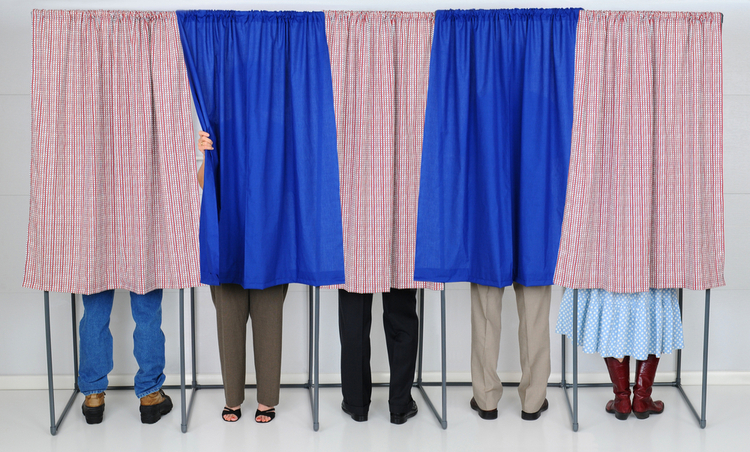Kansas AG argues no right to voter data privacy in federal court

The Kansas attorney general’s office is defending Kris Kobach, the outgoing Kansas secretary of state, by saying there is no right to privacy when it comes to state voter data, according to recent federal court filings.
In a suit filed by the American Civil Liberties Union of Kansas, the June 19 complaint alleges that Kobach recklessly disclosed private voter information, including partial Social Security numbers, through the Interstate Voter Registration Crosscheck Program.
The program shares voter registration data with member states to combat “double registrants,” voters who are registered in more than one state. The database had names and birthdates, and, under Kobach’s leadership, some states added partial Social Security numbers. The interstate program became part of Kobach’s crusade to end voter fraud—a problem that has been dismissed as virtually nonexistent, according to the Brennan Center for Justice at the New York University School of Law.
The case arose out of a 2017 public information request to the Florida Department of State Division of Elections, which is a member of the Interstate Voter Registration Crosscheck Program. The request, made by a Kansas resident, led to the release of the names and partial Social Security numbers of 945 “potential double registrants” from Kansas. Two of the named plaintiffs in the case were on the disclosed list.
The plaintiffs’ complaint relies on the 14th Amendment, which they argue includes a right to privacy that “safeguards against government exposure of personal information in which an individual has a legitimate expectation of confidentiality.”
According to the complaint, and an independent auditor in 2018, the Crosscheck system did not meet basic security standards. Passwords for the system were shared over email and included recipients outside of government, and encryption often was not used, as was the case with the disclosure at issue. Because of the known security lapses and data reliability concerns, numerous states declined to share voters’ Social Security numbers, and eight states stopped participating in the program entirely.
Plaintiffs seek declaratory relief, which would hold Kobach in his individual and official capacity liable under the 14th Amendment and the Kansas Public Records Act. They also seek an injunction that would halt the sharing of personal voting data until security standards are improved.
In a response filed filed in late October, the Kansas attorney general’s office argued that “the United States Supreme Court has never held that there is a constitutional right to informational privacy,” citing a concurrence in National Aeronautics and Space Admin. v. Nelson, written by the late Justice Antonin Scalia.
Lauren Bonds, the legal director of the ACLU of Kansas, was quoted by the Topeka Capital-Journal saying even if the 14th Amendment did not apply in this case, the actions taken by Kobach were “still reckless and extremely harmful to the voters who have had their information exposed.”
The attorney general’s office also argued in the response that Kobach is entitled to qualified immunity, and that the data released is not protected under Kansas law.
Crosscheck is operated by the state of Kansas and paid for by Kansas taxpayers. Beyond its security shortcomings, the Crosscheck’s capability to determine double registrants also has been in question. According to recent research published by Harvard University, Stanford University, the University of Pennsylvania, Yale Law School and Microsoft Research, the false positive rate—incorrectly identifying people as double registrants—was 99.5 percent.
Not his first lawsuit with voting rights advocates, a strict voter registration law that Kobach wrote in 2011 was challenged and struck down earlier this year.
Chief U.S. District Judge Julie Robinson ruled against the law because it “disproportionately impacts duly qualified registration applicants, while only nominally preventing noncitizen voter registration.”



